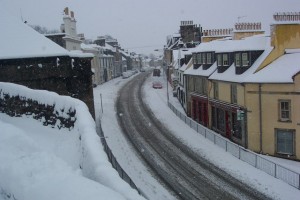 On Monday, 465.8 million cubic metres of gas were used in Britain, setting a new all-time record. The sudden rise in gas consumption can be attributed to the freezing weather conditions that have gripped much of Britain.
On Monday, 465.8 million cubic metres of gas were used in Britain, setting a new all-time record. The sudden rise in gas consumption can be attributed to the freezing weather conditions that have gripped much of Britain.
As snow, ice and well-below-zero temperatures continue to freeze the nation, many people have stayed at home, either by choice or necessity, instead of heading off to work, school or wherever else. The result has been a surge in gas usage for domestic central heating systems.
According to the charity National Energy Action (NEA), each drop in winter temperatures of one degree (Celsius) adds 29p per day to heating bills. It has been estimated, therefore, that the unseasonably wintry conditions are inflating average weekly energy bills by approximately £10. With no definite end to the cold snap in sight, households across Britain must face up to the possibility of significantly increased heating bills over the winter.
The National Grid has been monitoring the surge in gas demand closely and, on Sunday, the energy utility notified users of a “gas balancing alert” or shortage warning – an unprecedented step for this time of the year. Only six such warnings have been issued since 2005.
Edward Cox, of ICIS Heren, an energy information consultancy firm, advised that Britain has not been tested to this extreme since it switched from domestic gas supplies in the North Sea to foreign imports some 10-years-ago.
Mr Cox said: “It is very early to get this high level of demand for gas – we’ve never had a December where demand for gas has been this high. There is always scope for something unplanned, like a big issue at a terminal and if you are already a bit pushed, there is less scope for things to go wrong.”
The National Grid’s network operations director, Chris Train, has attempted to allay fears of impending gas shortages. Mr Train said: “Increased demand for energy is an inevitable consequence of the cold weather as Britain shivers. However, we remain well supplied with gas and electricity.”
Only time will tell if Britain is set to run short of gas supplies this winter.


